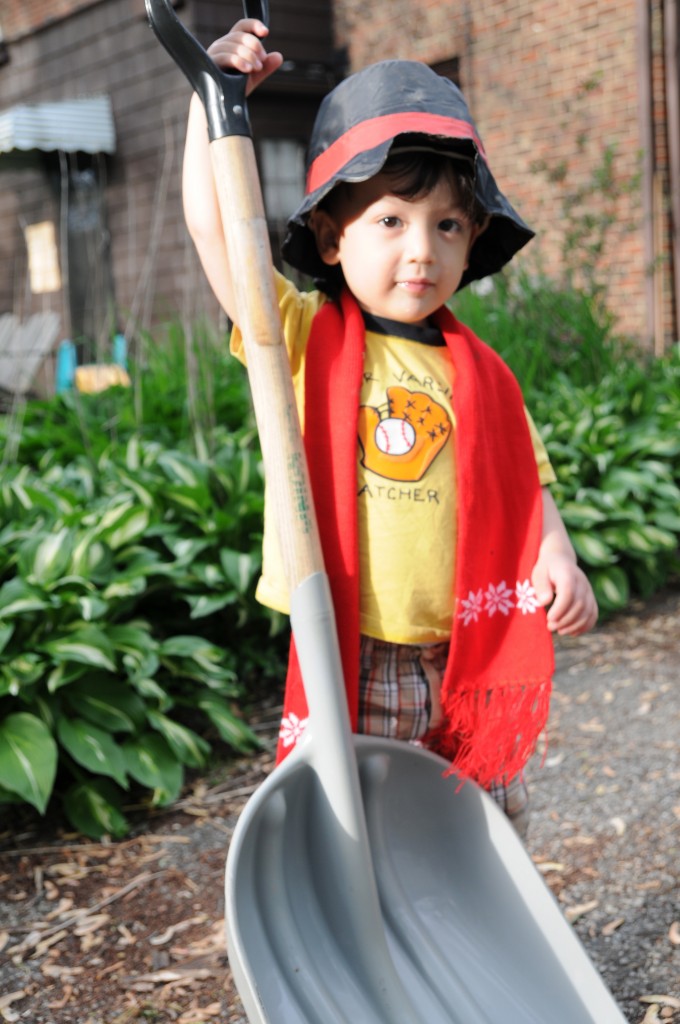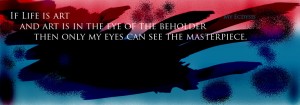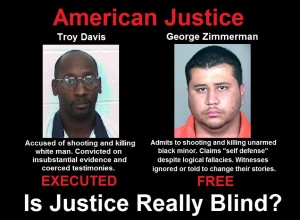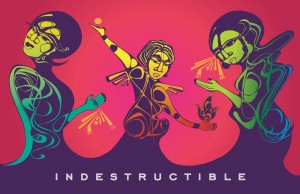it was about ten years ago that i received a certain letter from nick
and he used a phrase that i haven’t forgotten after all these years. he wrote, “today was such a beautiful day and yet i know that it’s also a day that i’ll likely never remember.” i remember reading that sentence and being struck by its complexity about the gift of our lives, compounded by our inability to remember much of it.
today was like one of those days. i would call it a perfect day in my little life // perfection, as in, i had a day that perfectly reflects the joy in my current life situation. not the absence of flaw. //
nick was off with his best buds, enjoying the morning after cinco de mayo in pittsburgh. and i was left with nothing but a bouncing two year old with an expanding vocabulary and eroding interest in naps, along with one of the most gorgeous weather days cleveland has ever seen. i kept wishing my skin had a sensory camera to capture the sweet lavender in the air, the near aqua skyline, and fresh burst of lime green trees. it was almost unreal, my eyes kept scanning the horizon of wherever I was, i just wanted to keep taking it in.
isaiah wondered into my room when he woke up and proceeded to tell him me that he did NOT want to go to church. i wasn’t alarmed. he also says that he doesn’t like pizza and i know that is definitely not true.
we dressed.
i spoke sternly to isaiah to stop playing with my glasses case because the cleaning cloth i stored inside the case was missing and i knew he was fond of opening and closing it when i wasn’t looking. as i turned my back on his somber face, i wondered if i had come down too hard on him. the thought evaporated as he gleefully called my attention, “mama! look!” as he held the small piece of cloth that had been missing. “it was on your chair!” he said proudly.
i couldn’t believe he found it.
I packed cheerios (“mama! that’s too much cheerios!” he said as i filled the sandwich bag) and pretzel rods: his staple church food. i loaded him in his red wagon, strapped him in, and tossed his diaper bag and my monstrous purse in the empty seat and began the slow wagon walk to church, closing my eyes into the wind. the quiet was delicious.
we parked the wagon in the back of the church and slipped into the cry room where isaiah has learned to behave quite well for an hour mass, including shaking hands and giving peace greetings.
we headed home.
we danced in the kitchen to FM radio and changed our clothes to play outside. it was only 10:30am and i felt he and i had already loved each other and the world more than three times over. our heads were delirious with excitement over nothing.
i had more energy than i knew what to do with and washed the windows outside while isaiah trotted back and forth on the lawn, pretending to mow it. after i dragged his miniature basketball hoop to the front stoop and began taking impossible shots from the lawn, isaiah quickly learned context as i shouted, OH MONEY! when the ball swooshed through the net.
he ran around dunking it screaming MONEY! MONEY! MONEY! for ten minutes.
the neighbors think we’re wack.
then our favorite next door neighbor, ms. m., came outside and we talked on and off while we both worked on our homes and trees, weeds and herbs. isaiah talked to her as well:
ms. m: how are you isaiah?
isaaiah: great! did you see squirrel in tree?
ms. m: the squirrel? oh yes. all the time. they run everywhere. they’re so…so…oh what’s the word?
isaiah: cute?
ms. m and i laughed for a good several minutes at isaiah’s vocabulary suggestion.
as i pruned the trees that draped from our property onto ms. m’s driveway, isaiah dutifully picked up the long branches and put them in a pile. this went on a few hours. neighborly exchanges, borrowing tools.
when we went inside, i was shocked that i was already 3pm but isaiah’s tired hungry face didn’t lie.
i filled a plate with a sandwich and a few of his favorite treats, marshmallows. a glass of milk within arms length. within minutes the food was gone. i turned around to ask him if he wanted more and his head was hanging low, his eyes half closed.
the kid was asleep on the table.
i gently picked him up and his head rolled onto my shoulder and brought him upstairs. he smelled of the earth, spring, and toddler sweat. a perfume of boyhood and love. i laid him in his bed, second guessing if i should change him. he was adorable, but filthy. for once i let him be dirty. i took off his sandals and his fat sweaty toes instantly took a breath. his eyes never once opened.
i wandered to the kitchen, wondering how my allergies had not yet kicked in at all, or my seasonal asthma. as i chopped a baby eggplant and sautéed it with garbanzo beans, i nonchalantly labeled it a miracle from god. i tossed the eggplant and beans over small serving of golden fluffy couscous and a king size bed of mixed greens and ate until my heart’s content, feeling like my appetite sharpened from so many hours in the sun. as i admired the rare occasion that our house was tidy and our landscaping was reasonably under control, i heard a familiar laughter in the driveway.
nick was home.
as we exchanged updates about our weekend, we laughed like a couple on a date, when everything someone says is fascinating yet familiar which makes you laugh even harder.
as i laid back in the couch, i heard nick rustle and felt him gently lay his head on my chest. quiet.
we could feel the spring wind coming through the newly washed windows. a small kiss. made me think that our 7 year anniversary is in a few weeks and felt, in that moment, “this is exactly why we got married. to have this moment right now.”
and before i could tell him that, i heard the pitter patter of excited feet, the small wood groan of a door on a rusty hinge, and a voice, “mama? mama?”
i walked up the stairs and turned the corner to find two huge brown eyes looking for me. they were my eyes, but nick’s expression. dark pupils, an unassuming spirit lingered behind them. his father’s son indeed.
nick went into laundry gear and I went on a bike ride. a 43 minute cruise of the noiseless streets, with a scant showing of human existence. everyone seemed to be elsewhere in the world. i didn’t mind.
i strapped on my heart monitor to keep track of my workout pace and challenged every hill i could find. push. push. push. puuuussshhh.
when i came home, isaiah met me at the door, squealing and nick was on the phone with his parents. he was updating about our impending events. my father’s 70th birthday party. nick’s graduation and graduation party the following weekend. then memorial weekend. it was a busy time.
isaiah came outside to help me put my bike away and somehow found the remnants of the costume he used when making a snowman. he flopped on the hat and swung the red scarf around his neck. and then he grabbed the shovel out of the driveway. as i swept the helicopter leaves, nick talked on the phone, and isaiah the snowman started shoveling non existent snow, my heart swelled.
ordinary. ordinary.

an ordinary sunday evening at dusk, with no particular reason to be grateful except that’s all my heart could muster. even this photo of isaiah is ordinary. slightly fuzzy, the lighting off, begging to be sharpened, but it’s real. it’s perfectly imperfect. it’s isaiah. it’s life.
i whirled a spaghetti and garlic bread dinner as “a league of their own” – nick’s favorite movie – came on tv. we ate, chatted, joked. isaiah tried out his newly cemented manners, “i don’t like this anymore, thank you.” as he pushed his plate as far away from him as possible when he was done eating.
we watched the rest of the movie, dancing during commercials and tickling each other until someone screamed STOP.
and then we ate vanilla ice cream with sprinkles before showers, prayers, and bedtime.
and now i write this.
i write this not to share what a grand life i have. i write this not to throw joy in your face if you feel joyless. i don’t even write this for anyone else but myself. to remind myself that every once in a while, a day, a moment comes along that gives us amnesia. it has no memory of what brought us to that day, it only knows what is happening in real time. in those rare moments, there is no past or future, or even whimsical dreams. there is only now.
i write that moment down now so i can have that fraction recorded somewhere. i write it because i know that most things written today are about anything but what i just wrote: un-newsworthy events that affirm every goodness still in the world. a sunny day. a child’s innocence. gardening. dirty feet. a conversation. spaghetti. a photo taken. scrubbing a toddler clean.
and these things i write are only a handful of the million moments i experienced today, but already, i cannot remember all that took place. i can’t remember what isaiah said to me after i asked him if he wanted strawberry milk. (but i do remember the face he made when he licked the inside of a lemon for the first time last night) i can’t remember what my neighbor shared as we exchanged parenting stories. i don’t even recall what i wore today.
but
each thing was done with love and gratitude.
//it was a perfect day//




